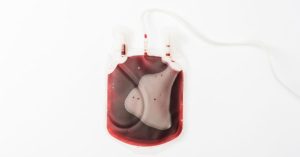
by Daniel J. Cameron, MD MPH
The findings of this double-blinded placebo controlled clinical trial were published in The Lancet Infectious Disease. In a post hoc analysis of 134 subjects, the authors were able to prevent 6 rashes if the gel was applied after a tick bite. The gel delayed the onset of EM rashes by 33 and 51 days, respectively, in an additional two subjects.[1]
The trial did not show that the 10% azithromycin gel could prevent Lyme disease. It only demonstrated that the gel could prevent or delay a few EM rashes in a subset of patients bitten by a tick.
It would be nice to have a quick fix to prevent Lyme disease following a tick bite. But treatment with azithromycin gel is not the answer. Based on this trial, the gel should not be used to prevent Lyme disease.
References:
- Schwameis, M., et al., Topical azithromycin for the prevention of Lyme borreliosis: a randomised, placebo-controlled, phase 3 efficacy trial. Lancet Infect Dis, 2016.



Thank you for this post, Dr Cameron. This was widely reported in the press as being a trial which showed that the gel had “promise” as a treatment for infected bites. As here: https://www.news-medical.net/news/20161220/Antibiotic-gel-shows-promise-in-preventing-onset-of-Lyme-borreliosis-following-tick-bite.aspx
It is a shame the gel failed to work
Is Azithromycin in tablet form affective to treat Lyme?
Oral Zithromax has been effective in most studies. Doxycycline beat Zithromax in on study my Massaroti in 1992.
Because the company making the gel was able to get special status from CDC, called QIDPb status, they get two tries at doing a stage III clinical trial such as this. So long as they have the money, they a redo to look only at the subgroup that showed some benefit. This worries me, because doing a placebo controlled study of high risk tick bites resembles Tuskegee to me: they are knowingly allowing the placebo group to get sick, in order to get a statistically more favorable outcome. Even if the gel helps a segment of people, there is no way for them to identify themselves in advance, so if it’s approved, everybody, not just the subgroup, will potentially use this, and forgo oral antibiotics. One of their medical advisors is Dr. Wormser. I think they might potentially raise the money because the product would be over the counter, this saving instance companies money they would have spent on doxycycline or Amoxicillin.
I also have concerns with trying to sell a cream based on subgroup analysis.